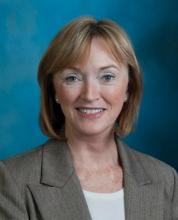NEW ORLEANS – The Centers for Medicare and Medicaid Services is expecting half of eligible physician offices and 80% of eligible hospitals to be meaningful users of electronic health records this year – a target that even the agency itself calls aggressive.
To date, 161,890 eligible professionals – out of 527,200 who are eligible – have attested to meaningful use, according to the most recent statistics from CMS. Most of those (161,677) did so successfully. About 200 were not successful. Of the 5,011 hospitals that are eligible, 2,653 have been successful. None failed.
So far, all of the eligible professionals and hospitals have had to prove only that they are meaningful users under stage 1 of the program. The rules outlining stage 2 criteria were published last year. The earliest physicians would have to attest to stage 2 criteria would be in 2014.
Even so, "2013 is going to be a busy year," said CMS Acting Administrator Marilyn Tavenner at the Healthcare Information and Management Systems Society annual conference. But the agency will try to take some heat off physicians and hospitals struggling to work within stage 1 and ramping up for stage 2, she said.
"We are going to spend 2013 focusing on education, focusing on learning, and focusing on what is working in stage 2 and what is not working in stage 2," said Ms. Tavenner.
She added that doctors would get a special focus this year. "We’re going to spend a lot more time with physicians – helping physicians learn, and helping physicians work with their current vendors to make things a little easier for them," Ms. Tavenner promised.
Under stage 2, physicians will have to meet a total of 20 core objectives. Among the new objectives: demonstrating the ability to use secure electronic messaging to communicate with patients; and providing patients the ability to view online, download, and transmit their health information within 4 days of those data being available to the doctor.
CMS still aims to have physicians begin attesting to stage 3 in 2016. However, the agency will hold off on issuing any stage 3 regulations for now, she said. "We are not going to issue additional rules in 2013," Ms. Tavenner said. "We are going to learn from stage 2 so it can help us design where we are going in stage 3."
Part of that learning curve will include what Ms. Tavenner called "tiny" audits. The idea is that CMS would work collaboratively with physicians and hospitals to figure out how to begin to audit electronic health records.
"This is a give and take – this is not like a payment audit," she explained. The goal is to understand what happens once a system is installed – that is, are physicians using it regularly and getting any benefit – and to determine what changes CMS might need to make, said Ms. Tavenner.
The agency will also convene a summit with physicians, hospitals, systems vendors, and government officials in May, she said. Again, the focus will be on understanding what needs to happen in stage 2.
On Twitter @aliciaault


